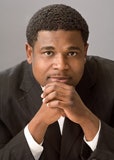
What are now called Historically Black Colleges and Universities were at one time the only route many young scholars could take to obtain a college degree and elevate their lifestyles. This is not to say that these HBCUs were second-rate; the education received at these establishments has always rivaled that of institutions without the same label, producing such graduates as Thurgood Marshall, Toni Morrison and Spike Lee. Traditionally, HBCUs have also had a strong alumni presence, with the great minds of the graduates giving back to the institutions that taught them so much.
What was once a role built of necessity has slowly disappeared, however. The Civil Rights Movement, affirmative action initiatives and, more recently, the popularity and legitimacy of online degree programs have all chipped away at the core reason HBCUs were developed in the first place. Declining enrollment has unsurprisingly led to a domino effect, reducing the resources available to students on campus and making the HBCU experience less attractive to students choosing between a plethora of higher education options.
There are standouts, of course—HBCUs whose reputations have sustained them through the changing landscape of Black college education in the U.S. Atlanta liberal arts powerhouses Morehouse College, often referred to as the “Black Ivy League,” and Spelman College continue to attract the top talent in the country to their programs. Morehouse boasts an 83 percent freshman retention rate while Spelman is the largest producer of Black graduates that go on to medical school (of ALL U.S. colleges).
For every Spelman or Morehouse, however, there is a Saint Paul’s College, forced to close its doors in 2013 after an unsuccessful merger attempt and unsustainably low enrollment figures. Atlanta’s Morris Brown College filed for federal bankruptcy protection after finding itself $35 million over its head.
Not surprisingly, these headline-grabbing instances and others like them have called HBCUs to the table. Are these colleges still a necessity in the growingly accepting and diverse American culture? Do these colleges help their students reach graduation effectively? Why, when considering all the other educational options available to students of color, should an HBCU be chosen? Are these schools still relevant?
Despite the struggles of some HBCUs, I think that these institutions are actually more relevant than ever—and for a larger pool of students than ever before. Instead of closing the door on these schools or questioning their relevance, the educational community should be encouraging them to remain open, and for more reasons than one.














